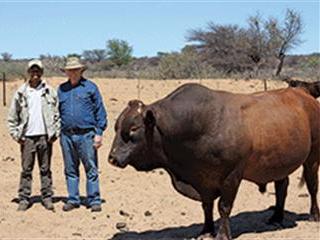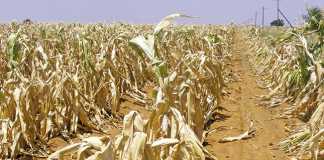
How did you get involved in agriculture?
Agriculture has always been a part of my life as I grew up on a farm in Swaziland and did my postgraduate internship at an agricultural company. From there I moved on to various other agricultural companies across Southern Africa and eventually in 2004 bought my own farm where I produced table grapes.
While I was farming I noticed that most of the emerging farmers were having a tough time. They all had the same problem: no access to finance and expertise. Many of them got their farms from government, but had no funds to develop the farm and so the farms went to ruins. Even those with Land Bank loans were struggling.
I succeeded because I have a background in finance and so I realised that there was a need to provide emerging farmers with the type of skills that I possessed. I sold the farm and started a company that funds emerging farmers and links them with the expertise they require.
With the inception of the African Farmers’ Association of South Africa (Afasa), I was asked to be on the executive council, with a specific mandate to look after women and youth in farming. From there I was chosen as the chairperson of the Agri-Sector Unity Forum (ASUF).
Who are ASUF’s members and how regularly do you meet?
ASUF has wide representation, which is unique to farm organisations in South Africa. There has never been one voice for agriculture as the point of view is always from either the white commercial farmers or the black emerging farmers who never seem to emerge.
Agriculture is not an easy topic in SA. It is an old issue and it is high time that the different representatives find each other.
Our members are Afasa, Agri SA, TAU SA, the Agricultural Business Chamber, the SA Agricultural Processors Association and the National African Farmer’s Union. We are planning to meet at least four times a year.

Ntombi Msimang
With so many different organisations, how do you co-ordinate decisions and reach consensus?
Our mandate is to find one voice and to lobby and put forward the same message to make agriculture work. Our organisation is only just starting to find ourselves. We have many issues to discuss but we have made a decision to find middle ground no matter what because it is for the benefit of the sector. From all sides we want to work together and carry the diverse membership of the whole country.
The representatives really feel the weight of the mandate. We might differ in the way in which we bring the message to our members, but the essence of the message is the same. We won’t absorb each other, but we will speak with one voice.
What is the biggest challenge facing the organisation?
The fact that we have formed is already a huge success. Many can’t believe that we got so far as to sit together and discuss issues amicably. Now we need to start unpacking the issues. Specifically we are looking at our competitiveness, the sustainability of the agricultural sector and the opening up of markets. We have a responsibility not only to farmers, but also to farm workers, to ensure the success of the sector.
here is a lot that can be done to strengthen our competitiveness, but we have not yet zeroed in and stated exactly what we will be looking at. Farming subsidies are not a popular topic, but there should be rebates that farmers can tap into.
Furthermore, our farm value chain is stuck in the 1950s. Farmers need to know what happens to their produce when it leaves the farm and get involved in the value chain. While you are a primary producer you will always be a price-taker.
Labour issues can be attended to without the threat of mechanisation. The relationship between farmers and their workers has been skewed for too long. One doesn’t just wake up one day and fix the wrongs of the past. If the labour force is not skilled and their children not sent to school, then the future of labour is doomed. We are a sector that can make a difference to poverty, racism and employment levels because these are things that start at a grassroots level.
Agriculture minister Tina Joemat-Pettersson has said in the past that agriculture should form one organisation as she did not have time to meet with each group separately. Will ASUF be that one organisation that government will be dealing with and what is your relationship with government like?
We hope to be a mouthpiece for the sector. We are only getting off the ground and in time we will be more coherent, but we are not there yet. We have met with both the agriculture department and the land reform department and we have a good relationship with both. Communication between government and the different members of our organisation is vital and there is goodwill within government to make the sector work.
I sympathise with government’s functionaries because they have a lot of capacity problems. For example, there may be a better way of treating mentors rather than advertising tenders for farming mentors. That is what neighbours are there for. I made it as a farmer because of the advice I received free of charge from my neighbours. It is part of being a good neighbour. This is not always the case, but within the membership of ASUF there are many who are willing to help.
Contact ASUF on 011 314 2833.












